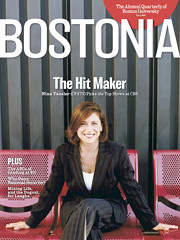For the last several years, when I ask people to think about a successful brand, I often ask them to think of Coca-Cola because, well, Coke is it. I don’t even have to drink it to appreciate why Coca-Cola has risen to the top of Harris Interactive’s “Best Brand” poll.
When Ron Kalb, associate director of public relations for R&R Partners, spoke to my class earlier this year, he shared what I thought was one of the most significant studies on branding I had ever seen, which underpins part of the “Fragile Brand Theory” that I have been working on for a few months. The study, conducted by Baylor College of Medicine a few years ago, showed the huge effect that the Coke label had on brain activity related to the control of actions, the drudging up of memories, and things that involve self-image.
The results were nothing less than amazing to me. When Coke and Pepsi were presented to participants in a blind test, their brains did not respond. When Pepsi was presented with its label, their brains did not respond. When Coke or Pepsi was presented with the Coke label, bingo, their brains lit up. Wow! It seems Kalb really did find the perfect quote to reinforce this concept in his presentation …
“Brand is the relationship between a product and its customer.” — Phil Dusenberry, chairman of BBDO Worldwide
Sure, when I talk about it, I tend to go a bit further to conclude brand is the relationship between a product and everyone (customers or not). But both ideas and the concept basically demonstrate that brand is not the product. Brand exists in the world of perception.
Another reason I like the Coke brand so much is because it provides an excellent example of something else I’ve discussed. The consistency of behaviors, actions, or messages can reinforce or detract from the brand. And, the closer a perception is to reality, the easier it is maintain. Coke is beautifully consistent and its messages continually reinforce its brand and reality.
This is true, so much so, that if you walk into a store and find one damaged can of Coke, you are likely to conclude the grocery store clerks are responsible. Yet, if you purchase a bag of Fritos and a tiny pinhole or other damage has allowed the chips to become stale, you are likely to conclude something happened on the Frito-Lay production line. Why is this? Brand.
The same can be said about the concept of polls. In the AdvertisingAge article that I’m about to link to, Matthew Creamer asks what the whole Best Brand poll really means. Robert Fronk, senior VP for Harris' brand and strategy consulting group, is wonderfully honest about it.
"Some of these polls are done for newsmaker purposes, as you know," he said. "Our PR firms love these quick little things to be able to work with."
And so do journalists. And so do bloggers. In some ways, no matter what the methodology is, we are preconditioned to give polls and surveys more validity. When it comes from Harris Interactive, even more so. In fact, I frequently raise an eyebrow when the methodology seems flawed, the number or respondents seems light, or someone assumes a poll does much better than provide a snapshot at the moment, assuming you have the right demographic mix.
In this case, I have to agree with Fronk’s assessment that on one hand, a one-question poll is not going to help a brand marketer. On the other hand, the one-question poll doesn’t diminish the fact that certain companies come to mind.
Sony, for instance, which held the top spot for the last seven years, dropped to No. 2. Does this mean Sony is doing something wrong? Probably not. Personally, I like Creamer’s take on it. He correctly attributes it to Apple’s ability to dominate the portable music-player category. Dell, which had been in the second spot last year, drops two spots to No. 4 this year. Maybe it has to do with their need for a new advertising campaign.
Hey, that was fast. It seems Michael Dell wasn’t joking when he said he wanted to reboot the Dell brand.

When Ron Kalb, associate director of public relations for R&R Partners, spoke to my class earlier this year, he shared what I thought was one of the most significant studies on branding I had ever seen, which underpins part of the “Fragile Brand Theory” that I have been working on for a few months. The study, conducted by Baylor College of Medicine a few years ago, showed the huge effect that the Coke label had on brain activity related to the control of actions, the drudging up of memories, and things that involve self-image.
The results were nothing less than amazing to me. When Coke and Pepsi were presented to participants in a blind test, their brains did not respond. When Pepsi was presented with its label, their brains did not respond. When Coke or Pepsi was presented with the Coke label, bingo, their brains lit up. Wow! It seems Kalb really did find the perfect quote to reinforce this concept in his presentation …
“Brand is the relationship between a product and its customer.” — Phil Dusenberry, chairman of BBDO Worldwide
Sure, when I talk about it, I tend to go a bit further to conclude brand is the relationship between a product and everyone (customers or not). But both ideas and the concept basically demonstrate that brand is not the product. Brand exists in the world of perception.
Another reason I like the Coke brand so much is because it provides an excellent example of something else I’ve discussed. The consistency of behaviors, actions, or messages can reinforce or detract from the brand. And, the closer a perception is to reality, the easier it is maintain. Coke is beautifully consistent and its messages continually reinforce its brand and reality.
This is true, so much so, that if you walk into a store and find one damaged can of Coke, you are likely to conclude the grocery store clerks are responsible. Yet, if you purchase a bag of Fritos and a tiny pinhole or other damage has allowed the chips to become stale, you are likely to conclude something happened on the Frito-Lay production line. Why is this? Brand.
The same can be said about the concept of polls. In the AdvertisingAge article that I’m about to link to, Matthew Creamer asks what the whole Best Brand poll really means. Robert Fronk, senior VP for Harris' brand and strategy consulting group, is wonderfully honest about it.
"Some of these polls are done for newsmaker purposes, as you know," he said. "Our PR firms love these quick little things to be able to work with."
And so do journalists. And so do bloggers. In some ways, no matter what the methodology is, we are preconditioned to give polls and surveys more validity. When it comes from Harris Interactive, even more so. In fact, I frequently raise an eyebrow when the methodology seems flawed, the number or respondents seems light, or someone assumes a poll does much better than provide a snapshot at the moment, assuming you have the right demographic mix.
In this case, I have to agree with Fronk’s assessment that on one hand, a one-question poll is not going to help a brand marketer. On the other hand, the one-question poll doesn’t diminish the fact that certain companies come to mind.
Sony, for instance, which held the top spot for the last seven years, dropped to No. 2. Does this mean Sony is doing something wrong? Probably not. Personally, I like Creamer’s take on it. He correctly attributes it to Apple’s ability to dominate the portable music-player category. Dell, which had been in the second spot last year, drops two spots to No. 4 this year. Maybe it has to do with their need for a new advertising campaign.
Hey, that was fast. It seems Michael Dell wasn’t joking when he said he wanted to reboot the Dell brand.




















